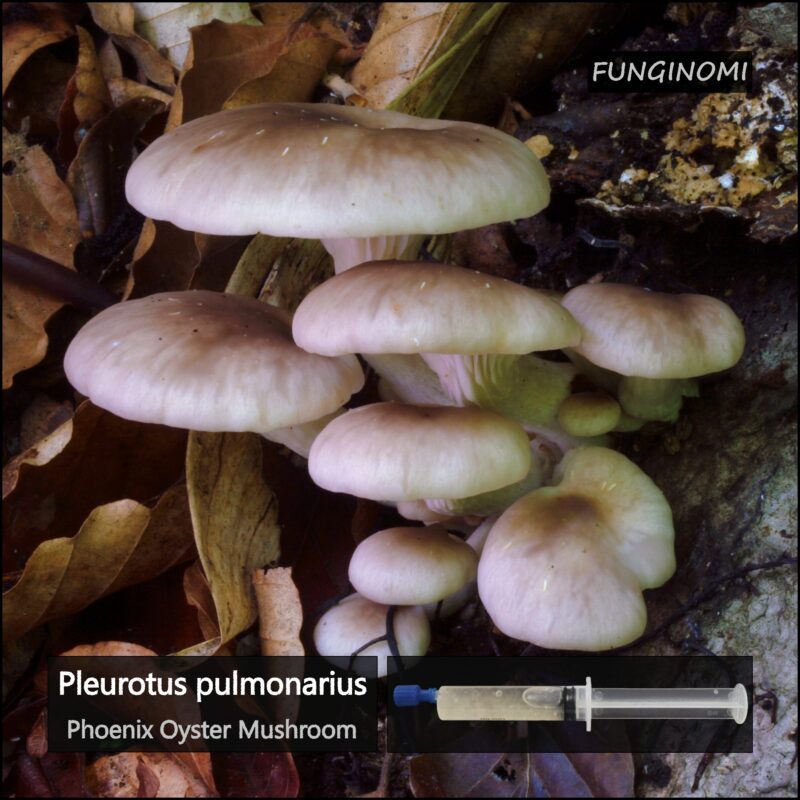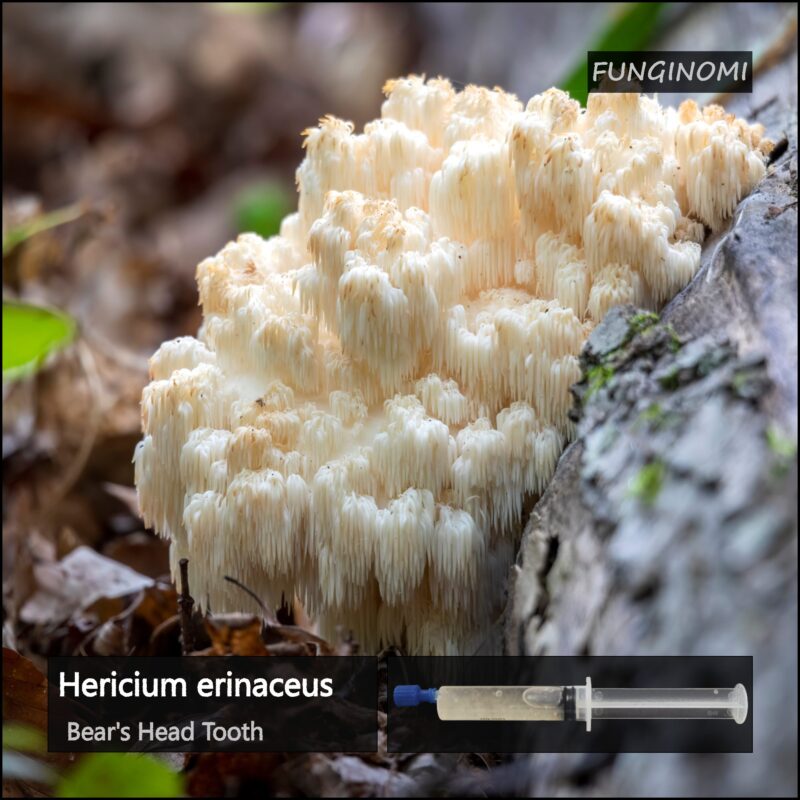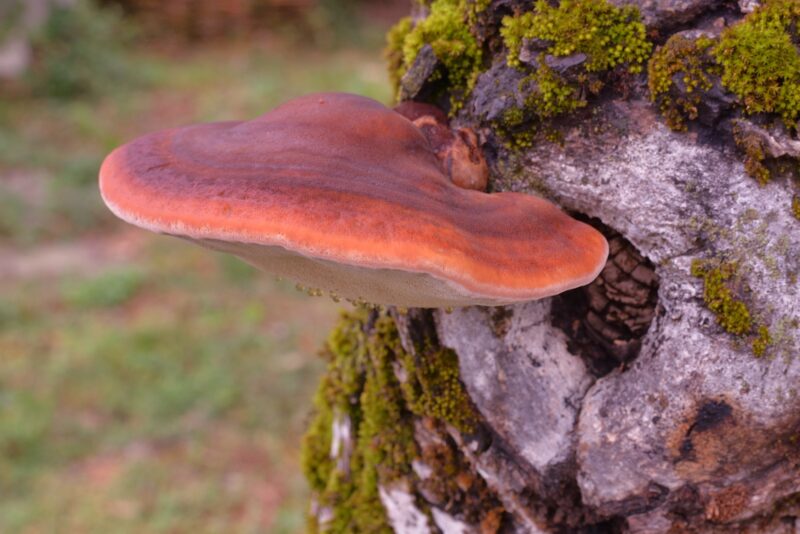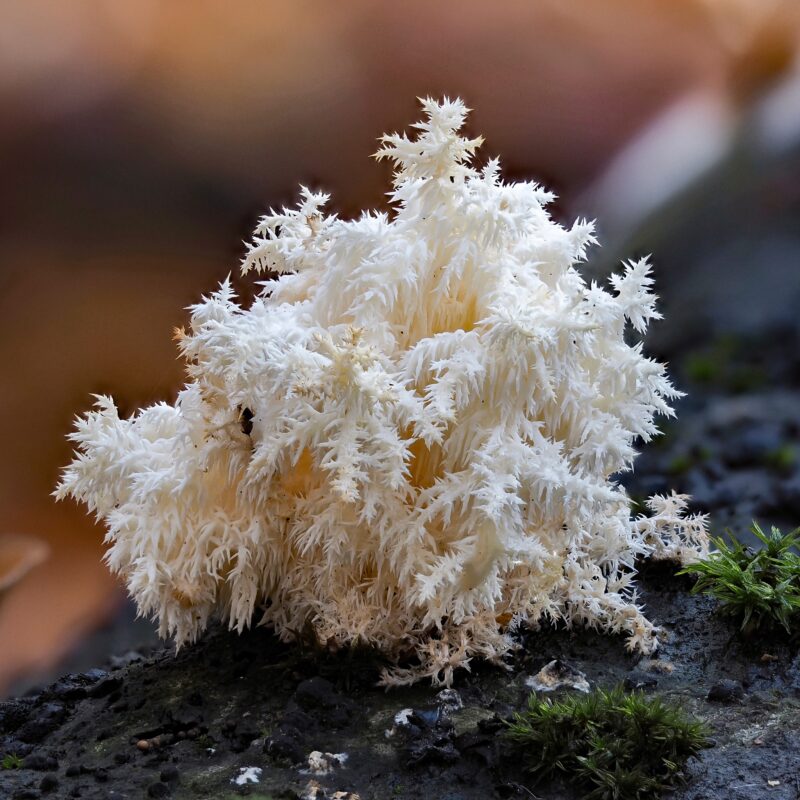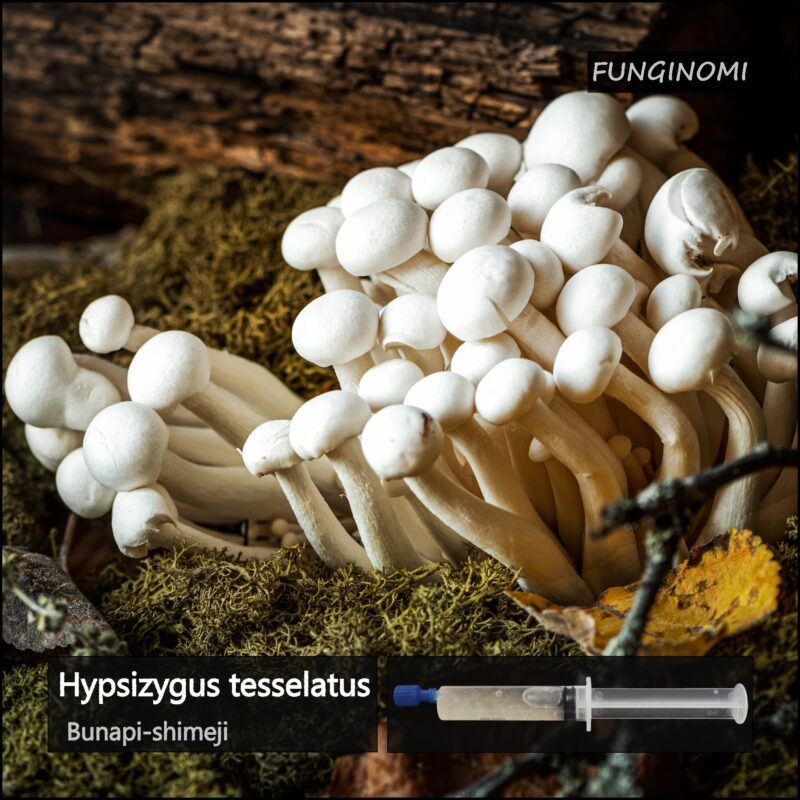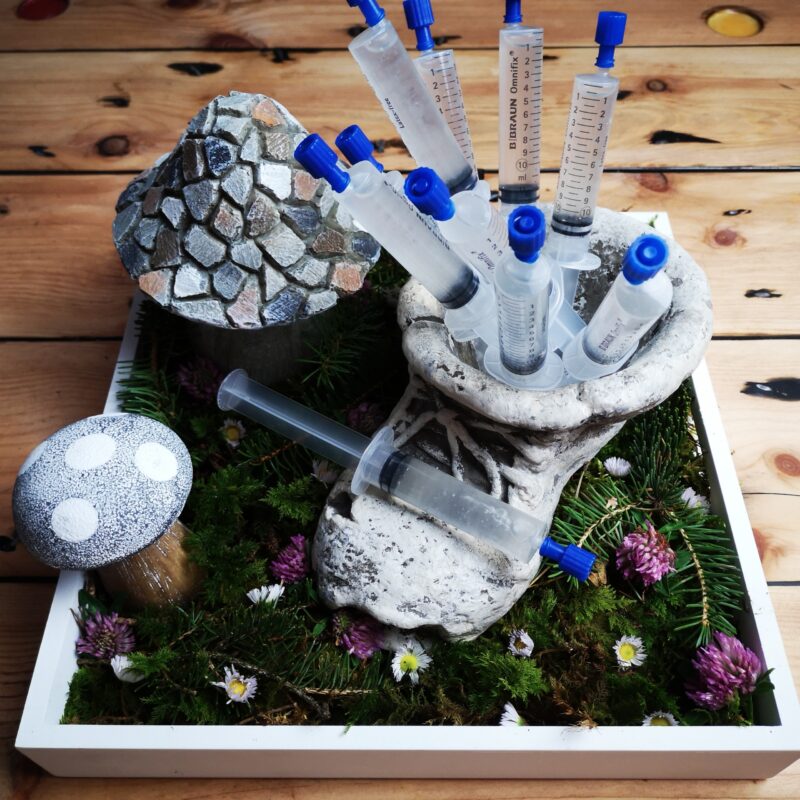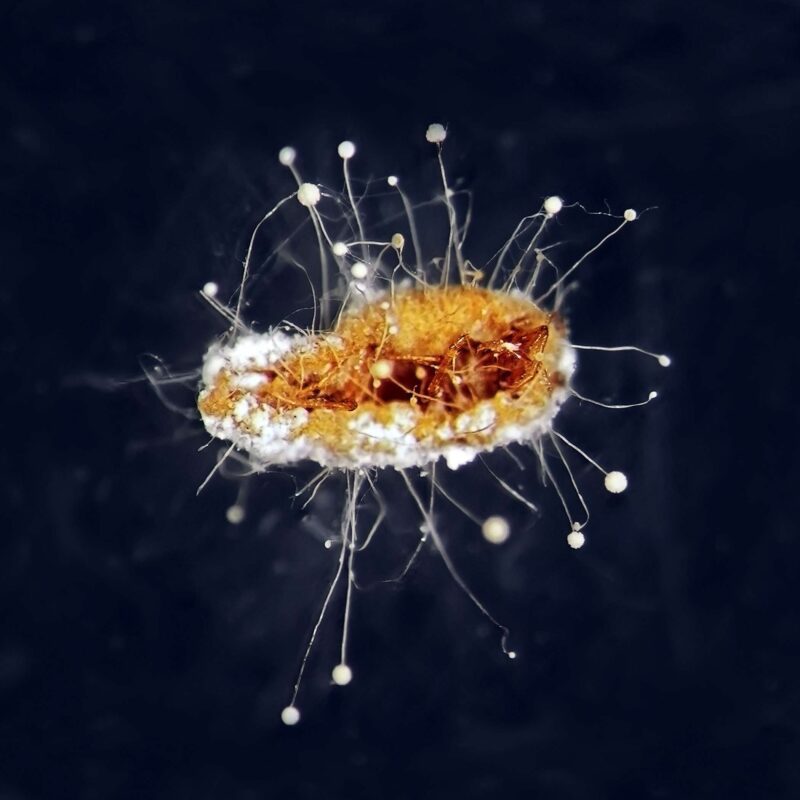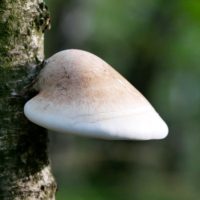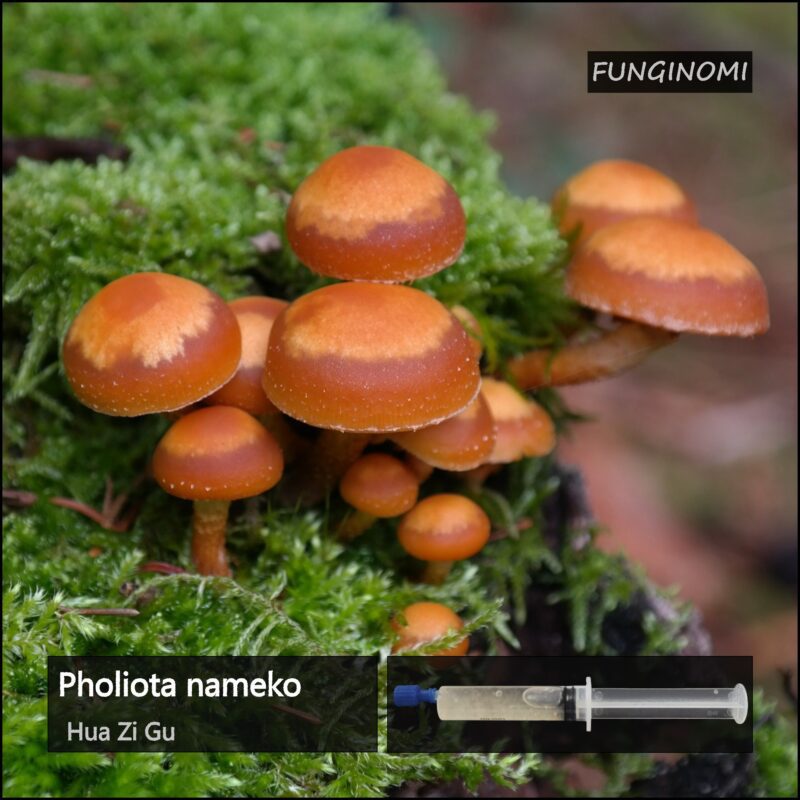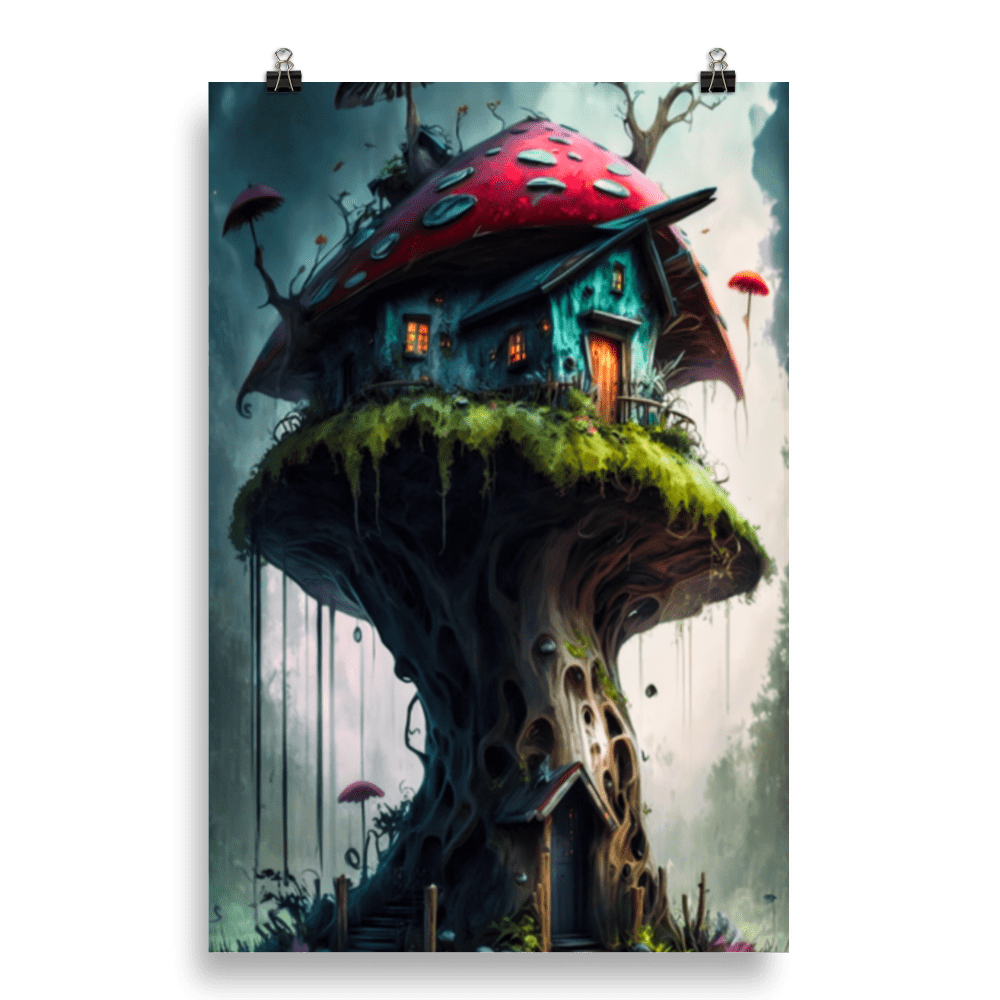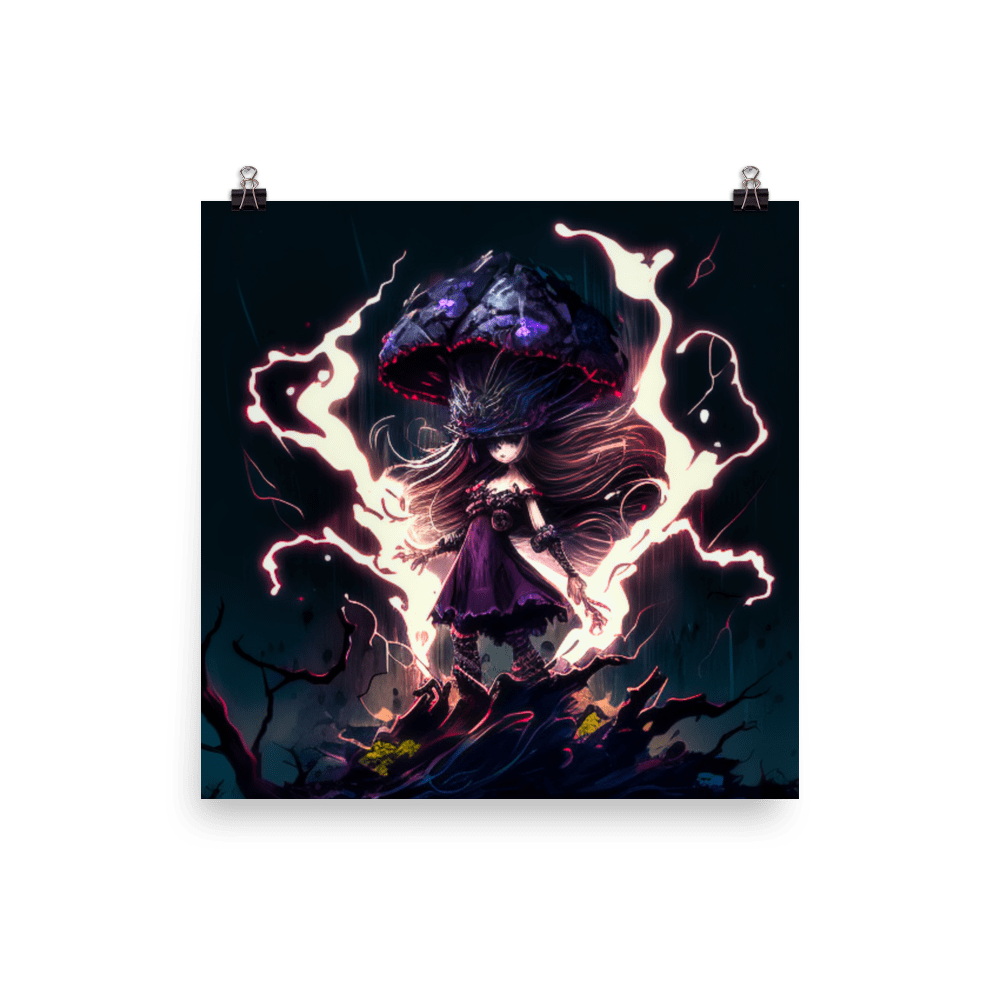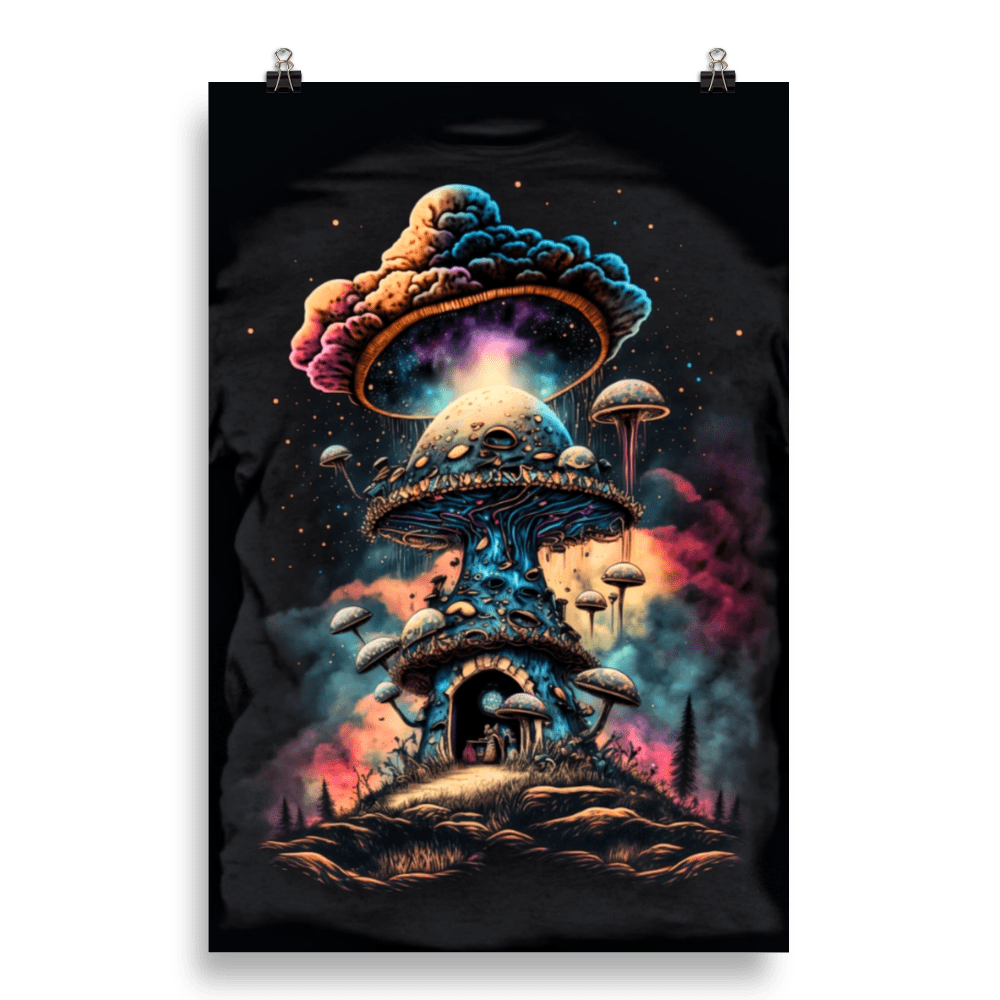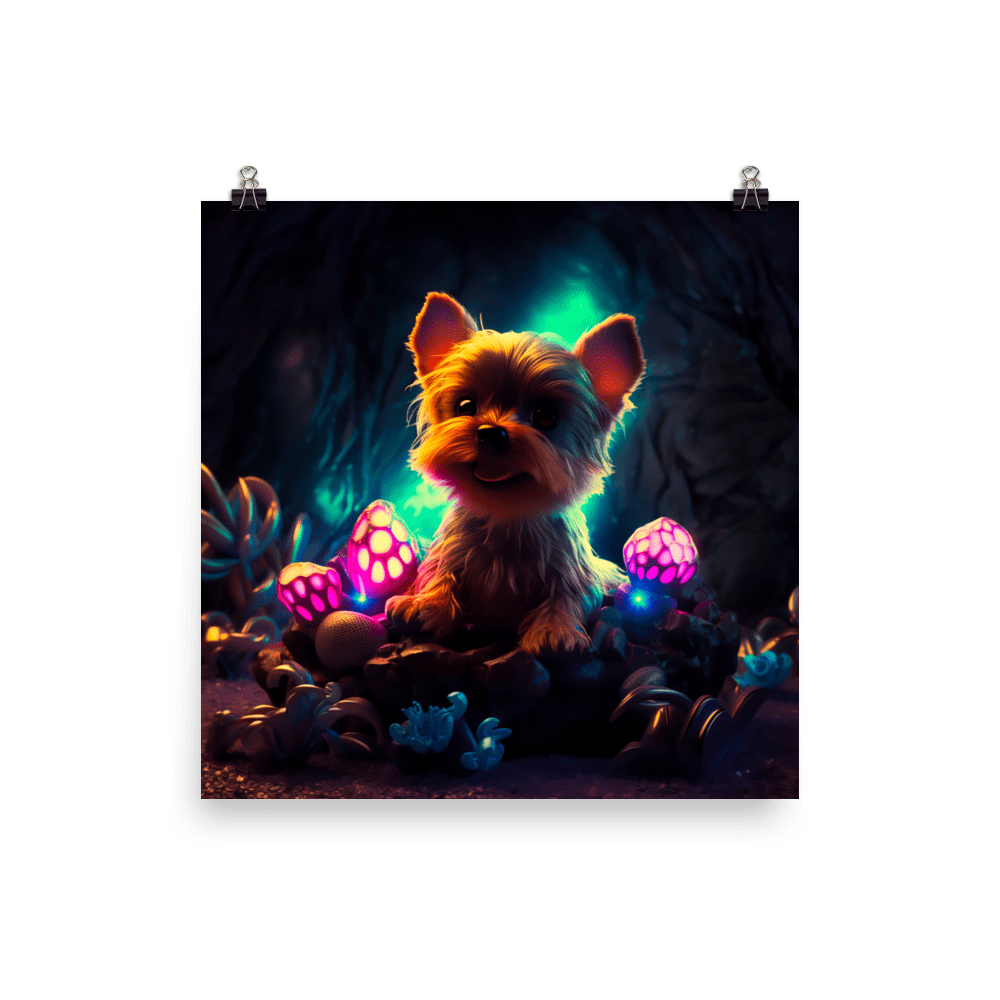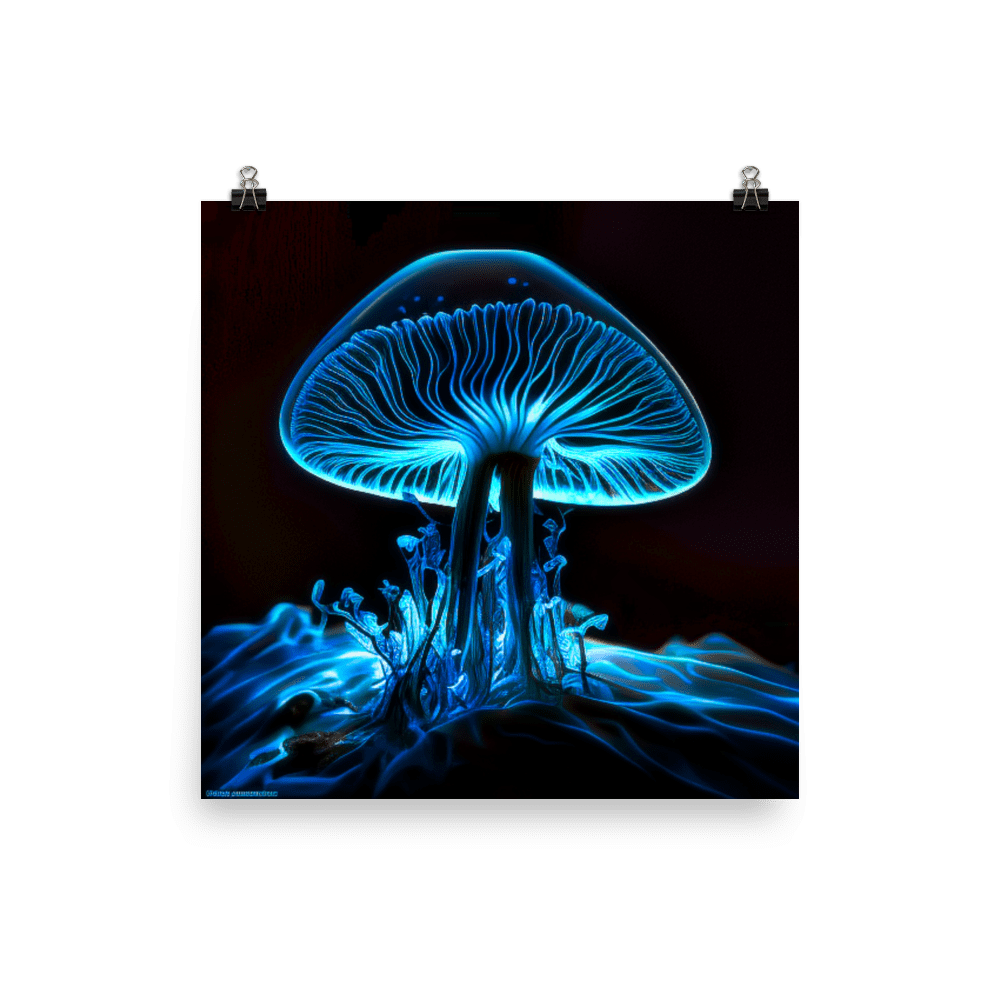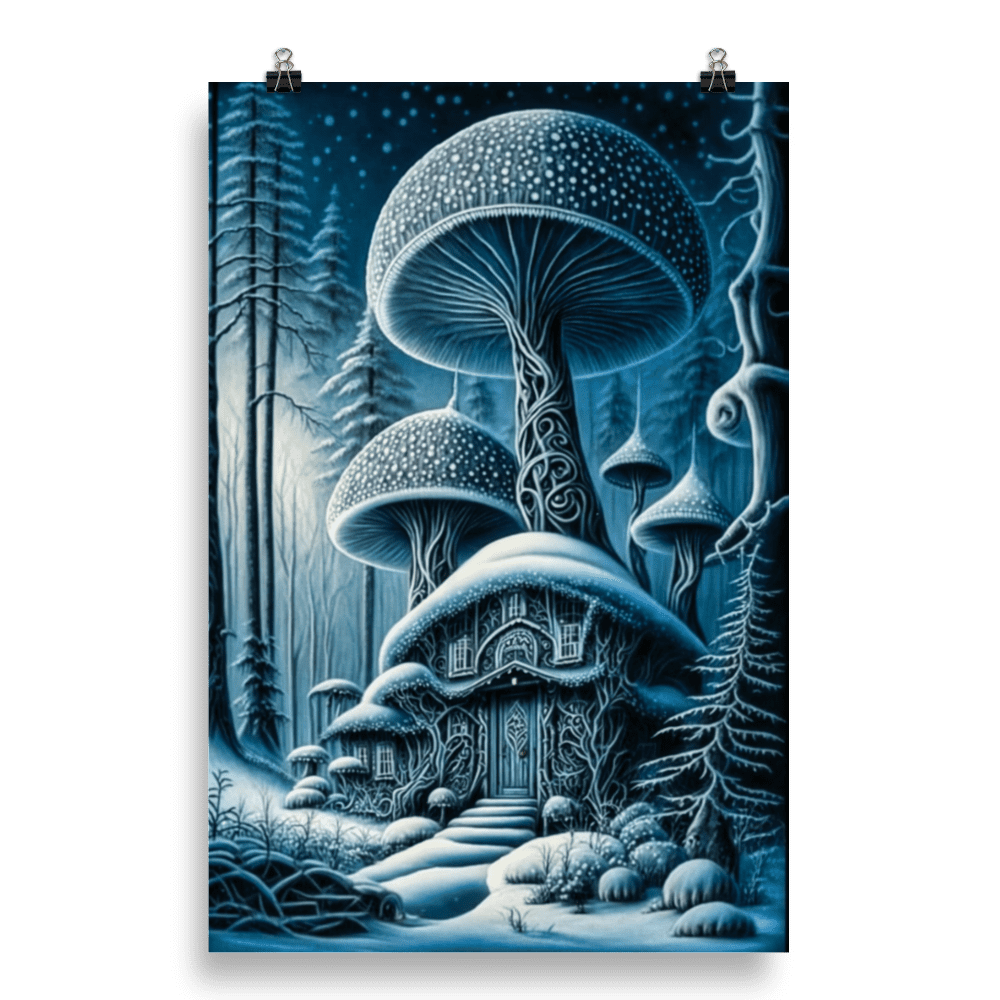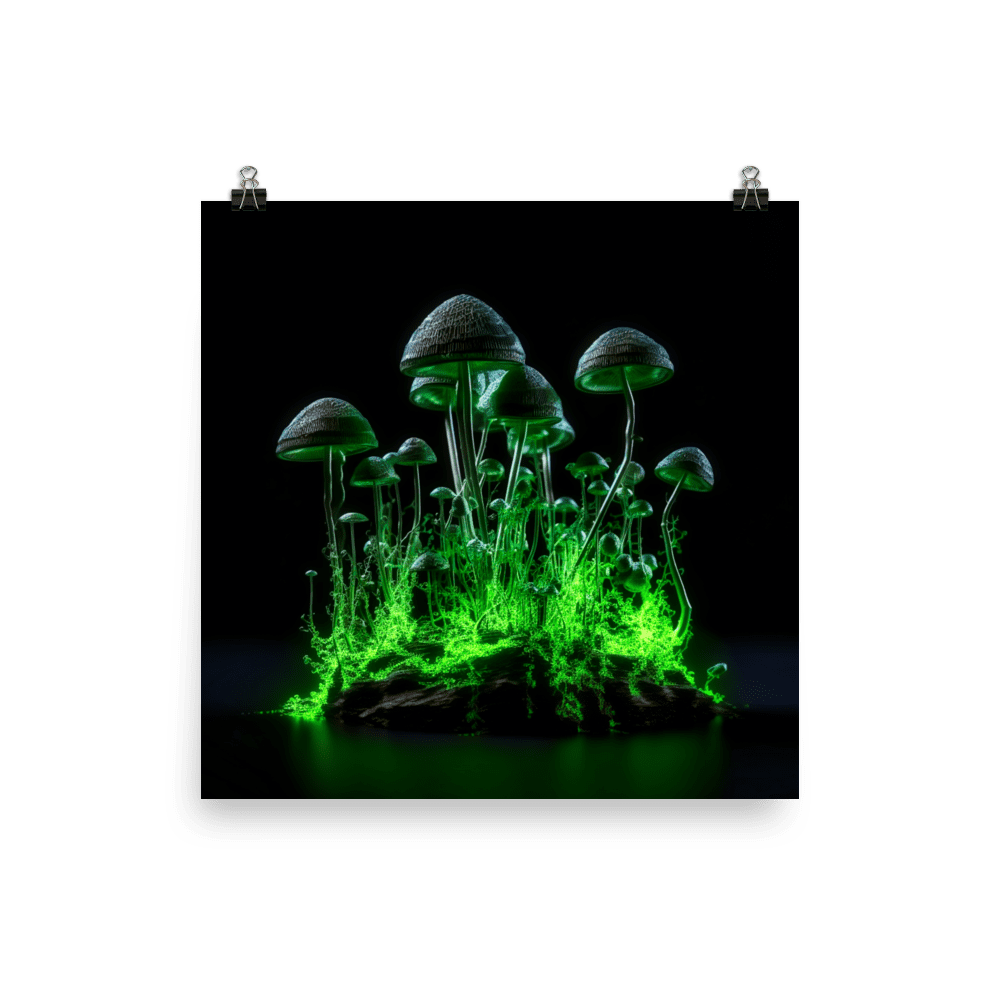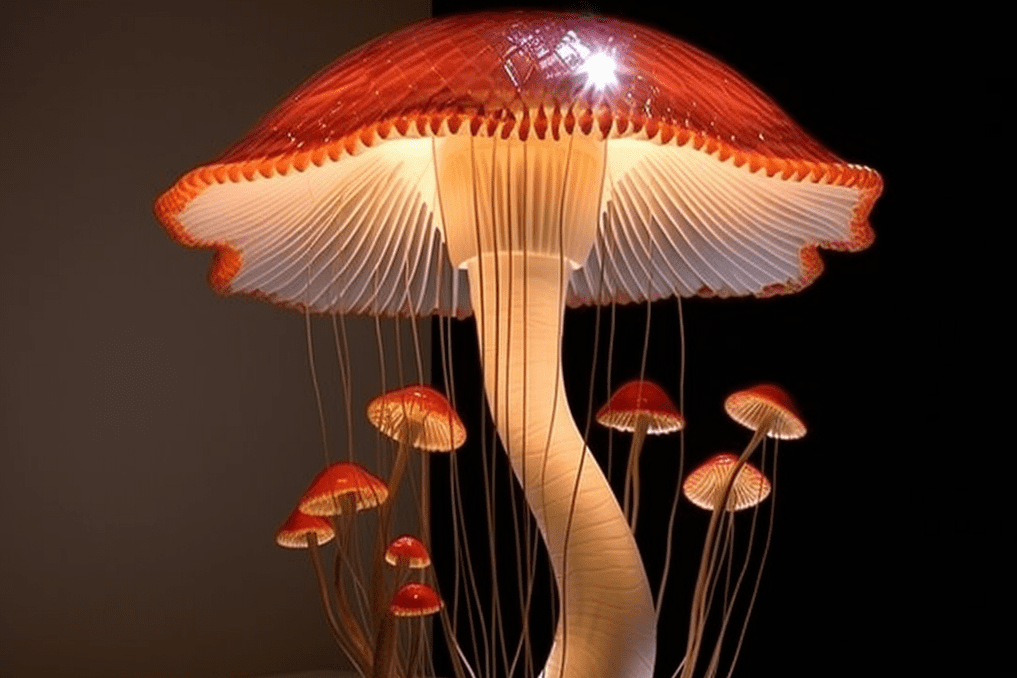The Power of Mushroom Psychology for Well-Being: A Comprehensive Guide
Introduction to Psychology and Well-being with Mushrooms

Importance of mental health and well-being
Importance of mental health and well-being
In today’s fast-paced and demanding world, mental health and well-being have become increasingly crucial. As we navigate the complexities of life, it is essential to prioritize our mental and emotional state to lead fulfilling and balanced lives. Understanding and taking care of our mental health can positively impact every aspect of our well-being, including our relationships, productivity, and overall happiness.
Mental health encompasses our emotional, psychological, and social well-being. It affects how we think, feel, and act, influencing our ability to handle stress, make decisions, and interact with others. Just as we prioritize our physical health by eating well and exercising, giving attention to our mental health is equally important for a wholesome and enriching life.
Maintaining good mental health enables us to cope with the challenges that come our way, adapt to changes, and form healthy relationships. It provides us with the resilience and emotional strength needed to face life’s ups and downs. Conversely, neglecting our mental well-being can lead to various mental health disorders, including anxiety, depression, and stress-related conditions.
Taking care of our mental health is not only essential for individuals but also has broader societal implications. Healthy individuals contribute to stronger communities, more productive workplaces, and overall social harmony. Recognizing the importance of mental health and well-being is the first step towards creating a supportive and compassionate society that values and nurtures mental well-being for all.
In this comprehensive guide, we will delve into the power of mushroom psychology for promoting mental health and well-being. We will explore the fascinating world of mushrooms and their potential to positively impact our emotional state, stress levels, and cognitive function. By harnessing the healing properties of mushrooms, we can enhance our well-being and embark on a journey of self-discovery and personal growth.
Let’s unlock the incredible potential of mushroom psychology and discover how it can transform our lives for the better.
Exploring the fascinating world of mushroom psychology
Exploring the fascinating world of mushroom psychology
Mushroom psychology is a captivating field that delves into the profound impact mushrooms can have on our mental and emotional well-being. It combines the ancient wisdom of mushroom usage with modern scientific understanding, shedding light on the therapeutic potential of these remarkable organisms.
Throughout history, various cultures around the world have recognized the power of mushrooms for their psychological and spiritual benefits. From indigenous practices to shamanic traditions, mushrooms have been revered for their ability to induce altered states of consciousness, enhance introspection, and promote profound healing experiences.
In recent years, scientific research has started to unravel the mechanisms behind these psychological effects. Mushrooms, particularly certain species like Psilocybin-containing mushrooms, have shown promising results in treating conditions such as depression, anxiety, and post-traumatic stress disorder (PTSD). They can facilitate transformative experiences, leading to improved emotional well-being and personal growth.
The psychoactive compounds found in mushrooms, such as Psilocybin, interact with specific receptors in the brain, altering neural pathways and promoting increased connectivity and communication between different regions. This neural flexibility allows for new perspectives, insights, and a deeper understanding of oneself and the world.
The benefits of mushroom psychology extend beyond mental health. Mushrooms are also known for their adaptogenic properties, helping the body and mind adapt to stress and promoting a sense of balance and resilience. Additionally, certain medicinal mushrooms, like Lion’s Mane and Reishi, have been studied for their cognitive-enhancing effects and potential to improve focus, memory, and overall brain function.
Integrating mushroom psychology into our lives can be a transformative journey. It involves responsible and intentional exploration, with a focus on set and setting, dosage, and integration practices. Whether through therapeutic sessions guided by professionals or personal experiences in nature, mushrooms can offer profound insights, emotional healing, and a renewed sense of well-being.
In this comprehensive guide, we will delve deeper into the world of mushroom psychology, exploring different types of psychoactive mushrooms, their potential benefits, and considerations for safe consumption. We will also examine how mushrooms can enhance emotional well-being, promote stress relief and relaxation, and boost cognitive function.
Join us on this captivating journey into the realm of mushroom psychology and unlock the transformative power of these extraordinary organisms for your own well-being and personal growth.
Understanding Mushroom Psychology
Defining mushroom psychology and its significance
Defining mushroom psychology and its significance
Mushroom psychology is a branch of study that explores the psychological and therapeutic effects of mushrooms on human consciousness, emotions, and well-being. It involves understanding the unique properties of mushrooms, particularly psychoactive species, and their impact on mental states, personal growth, and emotional healing.
The significance of mushroom psychology lies in its potential to provide alternative approaches to mental health and well-being. Traditional treatments for mental health conditions often involve pharmaceutical interventions, therapy, or a combination of both. However, mushroom psychology offers a different perspective by harnessing the natural properties of mushrooms to facilitate psychological growth and healing.
Psychoactive mushrooms, such as those containing Psilocybin, have been used for centuries in cultural and spiritual practices to induce altered states of consciousness. These altered states can lead to profound experiences, often described as mystical or transcendent, that have the potential to promote self-reflection, emotional breakthroughs, and a heightened sense of interconnectedness.
Research into mushroom psychology has shown promising results in the treatment of mental health conditions. Studies have indicated that Psilocybin-assisted therapy can alleviate symptoms of depression, anxiety, and addiction, as well as enhance overall well-being and life satisfaction. The therapeutic effects of mushrooms extend beyond symptom relief, with individuals reporting long-lasting positive changes in their attitudes, beliefs, and behaviors.
Furthermore, mushrooms are not limited to their psychoactive properties. Many medicinal mushrooms, such as Lion’s Mane, Cordyceps, and Reishi, have been recognized for their potential cognitive benefits, stress reduction properties, and immune system support. Incorporating these mushrooms into daily routines and dietary practices can contribute to overall mental and physical well-being.
By exploring mushroom psychology, individuals can tap into the transformative potential of these natural organisms. They can gain insights, release emotional blockages, and experience personal growth. Mushroom-assisted therapy, when conducted responsibly and with professional guidance, can provide a safe and supportive environment for individuals to explore their inner landscape and foster positive psychological changes.
In conclusion, mushroom psychology offers a unique perspective on mental health and well-being by harnessing the therapeutic properties of mushrooms. Through altered states of consciousness and the use of psychoactive and medicinal mushrooms, individuals can potentially enhance their emotional well-being, promote personal growth, and find alternative paths to healing. It opens up new avenues for research, treatment, and self-exploration, revolutionizing our understanding of human psychology and the potential for transformative experiences.
Role of mushrooms in traditional and alternative healing practices
Role of mushrooms in traditional and alternative healing practices
Mushrooms have played a significant role in traditional healing practices across various cultures for centuries. Revered for their medicinal properties and spiritual significance, mushrooms have been used as remedies and tools for healing in alternative systems of medicine. Here, we explore the role of mushrooms in traditional and alternative healing practices.
-
Traditional Medicine:
- Traditional Chinese Medicine (TCM): Mushrooms like Reishi, Cordyceps, and Shiitake are integral to TCM, known for their immune-boosting, adaptogenic, and energizing properties.
- Ayurveda: Medicinal mushrooms such as Chaga and Turkey Tail are used in Ayurvedic medicine to support immunity, digestion, and overall vitality.
- Indigenous Healing: Indigenous cultures worldwide have utilized mushrooms, often in sacred rituals, for their perceived spiritual and healing powers.
-
Psycho-Spiritual Practices:
- Shamanic Traditions: Psychoactive mushrooms, such as Psilocybin-containing species, have been employed by indigenous cultures for spiritual ceremonies, inducing altered states of consciousness, and gaining insight or healing.
- Vision Quests: Mushrooms have been used in vision quests and rites of passage to facilitate self-discovery, spiritual growth, and the exploration of one’s inner world.
-
Modern Alternative Healing:
- Psychedelic-Assisted Therapy: Research suggests that certain psychoactive mushrooms, under professional guidance, can be used in therapeutic settings to address mental health conditions like depression, anxiety, and PTSD.
- Integrative Medicine: Mushrooms are increasingly incorporated into holistic approaches, complementing conventional treatments for a range of health issues, including immune disorders, cancer support, and stress management.
-
Nutritional and Wellness Support:
- Dietary Benefits: Edible mushrooms like Shiitake, Maitake, and Oyster mushrooms provide valuable nutrients, antioxidants, and immune-boosting compounds when included in a balanced diet.
- Adaptogens and Wellness Supplements: Medicinal mushrooms like Lion’s Mane and Cordyceps are used as adaptogens, supporting stress resilience, mental clarity, and overall well-being when consumed as supplements.
Mushrooms, with their diverse bioactive compounds, offer a fascinating array of healing potential. While scientific research continues to explore their mechanisms and effectiveness, traditional and alternative healing practices have long recognized the valuable role mushrooms play in promoting physical, mental, and spiritual well-being. As interest and understanding grow, mushrooms are increasingly finding their place as valuable allies in the pursuit of holistic health and healing.
Scientific research on the psychological benefits of mushrooms
Scientific research on the psychological benefits of mushrooms
Scientific research on the psychological benefits of mushrooms, particularly those containing psychoactive compounds like Psilocybin, has gained significant attention in recent years. Here are some key findings from scientific studies exploring the psychological effects of mushrooms:
-
Reduction of Depression and Anxiety:
- Studies have shown that Psilocybin-assisted therapy can lead to significant reductions in depressive symptoms and anxiety in individuals with treatment-resistant depression and anxiety disorders.
- The effects of Psilocybin have been found to be long-lasting, with participants reporting sustained improvements in mood and reduced depressive and anxious feelings even several months after treatment.
-
Enhancement of Emotional Well-being:
- Psilocybin has been found to induce positive emotional states, including feelings of awe, gratitude, joy, and connectedness.
- Research suggests that Psilocybin-assisted therapy can facilitate emotional breakthroughs and increased emotional openness, leading to enhanced well-being and improved emotional regulation.
-
Altered States of Consciousness and Ego Dissolution:
- Psilocybin can induce altered states of consciousness characterized by profound changes in perception, thoughts, and self-awareness.
- Studies have reported the experience of ego dissolution, a temporary loss of the self-identity and a sense of unity with others, nature, or the universe.
-
Increased Openness and Mindfulness:
- Psilocybin has been associated with increased trait openness, creativity, and appreciation for aesthetics.
- Research suggests that Psilocybin-assisted experiences can enhance mindfulness and promote a more present-centered and non-judgmental attitude.
-
Positive Life Changes and Meaning-Making:
- Individuals who have undergone Psilocybin-assisted therapy often report profound and enduring positive changes in their attitudes, beliefs, and behaviors.
- These experiences can lead to increased personal well-being, improved relationships, a sense of purpose, and enhanced life satisfaction.
It is important to note that scientific research on mushrooms and their psychological benefits is still evolving, and further studies are needed to fully understand their mechanisms and potential applications. Moreover, these studies have typically been conducted in controlled settings under professional supervision to ensure safety and optimize therapeutic outcomes.
As research continues, the potential of mushrooms and their psychoactive compounds for psychological well-being is becoming increasingly recognized. Continued exploration of these effects may pave the way for new therapeutic approaches and expand our understanding of the mind, consciousness, and human psychology.
Types of Psychoactive Mushrooms
Overview of psychoactive mushroom species
Overview of psychoactive mushroom species
Psychoactive mushrooms, also known as hallucinogenic or magic mushrooms, contain compounds such as Psilocybin and Psilocin that can induce altered states of consciousness and psychedelic experiences. Here is an overview of some notable psychoactive mushroom species:
-
Psilocybe cubensis:
- Psilocybe cubensis is one of the most widely known and cultivated species of psychoactive mushrooms.
- It has a distinctive appearance with a cap that ranges in color from light tan to dark brown and a slender stem.
- Psilocybe cubensis is known for its high Psilocybin content and is often sought after for its potent psychedelic effects.
-
Psilocybe semilanceata:
- Commonly referred to as the “Liberty Cap,” Psilocybe semilanceata is a small, cone-shaped mushroom found in various regions worldwide.
- It has a distinctive nipple-shaped cap and a slender stem.
- Psilocybe semilanceata is known for its potent psychedelic properties and has been used in spiritual and recreational contexts.
-
Psilocybe cyanescens:
- Psilocybe cyanescens, also known as the “Wavy Cap,” is a potent species of psychoactive mushroom.
- It is characterized by its wavy or curved cap and tends to grow in colder climates, particularly in wood chips or mulched areas.
- Psilocybe cyanescens is known for its strong visual and psychoactive effects.
-
Psilocybe azurescens:
- Psilocybe azurescens is another potent species of psychoactive mushroom that thrives in colder coastal regions.
- It is recognized for its large and robust fruiting bodies, often found growing on wood chips or in garden mulch.
- Psilocybe azurescens is known for its high Psilocybin content and intense psychedelic effects.
-
Psilocybe baeocystis:
- Psilocybe baeocystis, also called “Blue Bell,” is a species of psychoactive mushroom found in North America.
- It typically has a bell-shaped cap with a dark brown coloration and a thick stem.
- Psilocybe baeocystis contains Psilocybin and Psilocin, leading to psychedelic experiences when consumed.
These are just a few examples of psychoactive mushroom species. It’s important to note that accurate identification of mushroom species is crucial to ensure safety, as some non-psychoactive species can resemble psychoactive ones. If one is interested in exploring the use of psychoactive mushrooms, it is recommended to seek guidance from experienced individuals, professionals, or participate in legally regulated therapeutic settings where available.
Description and effects of popular varieties (e.g., psilocybin mushrooms)
Description and effects of popular varieties (e.g., psilocybin mushrooms)
Psilocybin mushrooms, often referred to as “magic mushrooms,” belong to the genus Psilocybe and contain the psychoactive compounds Psilocybin and Psilocin. Here is a description of some popular varieties of psilocybin mushrooms and their effects:
-
Psilocybe cubensis:
- Description: Psilocybe cubensis is one of the most well-known and widely available species of psilocybin mushrooms. It has a convex or bell-shaped cap that ranges in color from light tan to dark brown. The stem is typically pale and slender.
- Effects: Consuming Psilocybe cubensis can induce various psychedelic effects, such as altered perception, enhanced sensory experiences, and changes in thought patterns. Users may experience visual distortions, vivid colors, and a sense of connectedness. Emotional and introspective experiences are also common, often accompanied by feelings of euphoria and introspection.
-
Psilocybe semilanceata:
- Description: Also known as the “Liberty Cap,” Psilocybe semilanceata is a small, conical-shaped mushroom with a distinctive nipple-shaped cap. It is typically light brown to pale yellow in color. The stem is slender and often curved.
- Effects: Psilocybe semilanceata is known for its potent psychedelic effects. Consuming these mushrooms can lead to a range of experiences, including visual distortions, altered perception of time, and profound introspection. Users may also experience enhanced creativity, feelings of interconnectedness, and an expanded sense of spirituality.
-
Psilocybe cyanescens:
- Description: Psilocybe cyanescens, commonly known as the “Wavy Cap,” is a potent species of psilocybin mushroom. It has a wavy or curved cap with a caramel to dark brown coloration. The stem is thick and often has a bluish hue when bruised.
- Effects: Psilocybe cyanescens is renowned for its intense psychoactive effects. Users may experience vivid visual hallucinations, enhanced sensory perception, and profound alterations in consciousness. The experience is often described as highly introspective, with a deep sense of connection to nature and the surrounding environment.
-
Psilocybe azurescens:
- Description: Psilocybe azurescens is a species of psilocybin mushroom known for its high potency. It has a large, convex cap with a caramel to dark brown color. The stem is thick, often with a bluish or purplish tinge.
- Effects: Psilocybe azurescens is known to produce strong and long-lasting psychedelic effects. Users may experience intense visual distortions, ego dissolution, and profound spiritual experiences. The effects can be transformative and often lead to deep introspection and self-reflection.
It’s important to note that the effects of psilocybin mushrooms can vary depending on factors such as dosage, individual sensitivity, mindset, and environment. The consumption of psilocybin mushrooms should always be approached responsibly, with proper knowledge, and in a safe and supportive setting.
Safety Considerations and Responsible Use of Psychedelic Mushrooms
The use of psychedelic mushrooms, such as those containing Psilocybin, should be approached with caution and responsible practices. Here are some important safety considerations and guidelines for the responsible use of psychedelic mushrooms:
-
Education and Research:
- Educate yourself about psychedelic mushrooms, including their effects, potential risks, and legal status in your location.
- Stay informed about current research, best practices, and harm reduction strategies related to psychedelic mushroom use.
-
Legality:
- Be aware of the legal status of psychedelic mushrooms in your country or region. Laws regarding their possession, cultivation, and consumption vary widely.
- It is important to adhere to applicable laws and regulations to ensure personal safety and legal compliance.
-
Set and Setting:
- Create a comfortable and safe environment for your psychedelic experience. Choose a setting where you feel secure and free from external disturbances or stressors.
- Set a positive mindset and intention for your journey. Approach the experience with openness, respect, and a readiness to explore your inner landscape.
-
Dosage and Sourcing:
- Start with a low dosage, especially if you are a beginner or unfamiliar with the potency of the specific mushroom species you are consuming.
- Obtain mushrooms from a reliable and trusted source to ensure quality, purity, and accurate identification. Improper identification of mushrooms can lead to harmful consequences.
-
Trip Sitting and Support:
- Consider having a sober and trusted trip sitter present during your psychedelic experience. A trip sitter can provide emotional support, ensure physical safety, and help navigate any challenging aspects of the journey.
- Maintain open communication with your trip sitter and establish a plan for assistance or intervention if needed.
-
Integration and Aftercare:
- After your psychedelic experience, take time for reflection and integration. Journaling, meditation, and talking with trusted friends or professionals can aid in processing the insights and emotions that arise.
- Practice self-care and prioritize your mental and physical well-being following the experience. Allow yourself time for rest, introspection, and integrating the lessons learned.
-
Personal Health Considerations:
- Consider your physical and mental health before engaging in psychedelic mushroom use. Certain medical conditions or medications may be contraindicated or require special precautions.
- If you have a history of mental health conditions, it is essential to consult with a qualified healthcare professional before using psychedelic mushrooms.
Remember, the responsible use of psychedelic mushrooms involves prioritizing safety, informed decision-making, and respectful engagement. Following these guidelines can help mitigate potential risks and maximize the potential benefits of your psychedelic journey.
Psychological Benefits of Mushrooms
Impact of mushrooms on mood and emotions
Impact of mushrooms on mood and emotions
Mushrooms, particularly those containing psychoactive compounds like Psilocybin, have been found to have a significant impact on mood and emotions. Here are some ways mushrooms can influence mood and emotions:
-
Mood Elevation:
- Mushrooms, when consumed in appropriate doses and settings, have the potential to elevate mood and induce feelings of euphoria, joy, and happiness.
- Psilocybin, the primary psychoactive compound in certain mushrooms, interacts with serotonin receptors in the brain, leading to increased serotonin levels and a positive shift in mood.
-
Emotional Openness and Intensity:
- Mushroom experiences often involve heightened emotional sensitivity and openness.
- Users may experience a deepening of emotions, both positive and negative, and a greater ability to explore and process emotional states.
- This increased emotional intensity can contribute to self-reflection, introspection, and a better understanding of one’s own emotions and thought patterns.
-
Facilitation of Emotional Healing:
- Mushrooms, particularly in the context of therapeutic settings, have shown potential in facilitating emotional healing.
- The altered state of consciousness induced by mushrooms can provide individuals with new perspectives, insights, and a release of repressed emotions.
- This can lead to emotional breakthroughs, cathartic experiences, and the resolution of past traumas or emotional blockages.
-
Enhanced Connection and Empathy:
- Mushroom experiences often involve a sense of connection and empathy towards oneself, others, and the surrounding environment.
- Users may experience a deepened understanding and compassion for others, leading to improved interpersonal relationships and a broader sense of interconnectedness.
-
Reduction of Anxiety and Depression:
- Research suggests that mushrooms, particularly in therapeutic contexts, can lead to significant reductions in symptoms of anxiety and depression.
- The effects of mushrooms on mood and emotions can promote a sense of well-being, alleviate depressive thoughts and feelings, and reduce anxiety and existential distress.
It’s important to note that individual experiences may vary, and the impact of mushrooms on mood and emotions can be influenced by factors such as dosage, set and setting, and individual susceptibility. Additionally, mushrooms should always be used responsibly and in a safe and supportive environment, such as in therapeutic or guided settings, to optimize the potential benefits while minimizing potential risks.
Alleviating anxiety and depression with mushroom-assisted therapy
Alleviating anxiety and depression with mushroom-assisted therapy
Mushroom-assisted therapy, specifically utilizing the psychoactive compound Psilocybin found in certain mushrooms, has shown promise in alleviating symptoms of anxiety and depression. Here’s an overview of how mushroom-assisted therapy can help in addressing anxiety and depression:
-
Shift in Perspective:
- Psilocybin can induce a shift in perspective and consciousness, allowing individuals to gain new insights and alternative ways of viewing their anxiety and depression.
- It can help individuals detach from negative thought patterns, break free from rumination, and foster a more positive and compassionate self-perception.
-
Increased Emotional Openness:
- Mushroom-assisted therapy often promotes emotional openness, allowing individuals to explore and process deep-seated emotions associated with anxiety and depression.
- It can facilitate the release of repressed emotions, providing an opportunity for catharsis and emotional healing.
-
Enhanced Neuroplasticity:
- Psilocybin has been shown to increase neuroplasticity, the brain’s ability to reorganize and form new connections.
- This neuroplasticity may enable individuals to break free from ingrained patterns of anxiety and depression, opening up possibilities for new ways of thinking, behaving, and responding to challenges.
-
Facilitated Meaning-Making:
- Mushroom-assisted therapy can help individuals find new meaning and purpose in their lives, which can be particularly beneficial for those struggling with existential or nihilistic thoughts.
- The experience can provide a profound sense of interconnectedness, spirituality, and a renewed appreciation for life, fostering a greater sense of purpose and well-being.
-
Long-Lasting Effects:
- Mushroom-assisted therapy has demonstrated long-lasting effects on reducing anxiety and depression symptoms.
- Research suggests that even a single session of mushroom-assisted therapy can lead to significant improvements that persist for several weeks, months, or even longer.
It’s important to note that mushroom-assisted therapy should only be conducted under the guidance of trained professionals in a controlled and supportive therapeutic environment. The therapeutic process typically involves preparation, integration, and ongoing support to maximize the benefits and ensure safe and effective outcomes.
Mushroom-assisted therapy holds promise as a potential adjunct to traditional therapeutic approaches for anxiety and depression. However, further research and clinical trials are needed to establish standardized protocols, dosage guidelines, and long-term safety considerations.
Enhancing creativity, mindfulness, and self-awareness
Enhancing creativity, mindfulness, and self-awareness
Mushrooms, particularly those containing psychoactive compounds like Psilocybin, have been reported to enhance creativity, mindfulness, and self-awareness. Here’s an overview of how mushrooms can impact these areas:
-
Enhancing Creativity:
- Mushroom experiences can stimulate creativity by altering perception, facilitating novel connections, and fostering a sense of playfulness and exploration.
- Users may experience enhanced visual and auditory perception, increased appreciation for art and aesthetics, and a greater ability to think outside the box.
- The altered state of consciousness induced by mushrooms can inspire new ideas, perspectives, and artistic expression.
-
Cultivating Mindfulness:
- Mushrooms can promote a heightened sense of mindfulness, which involves being fully present in the current moment without judgment.
- The altered state of consciousness experienced during mushroom use can facilitate a deep sense of immersion in the present experience, promoting mindful awareness of thoughts, emotions, and sensory perceptions.
- This increased mindfulness can lead to a greater appreciation of the present moment, enhanced focus, and a sense of connectedness to one’s surroundings.
-
Expanding Self-Awareness:
- Mushroom experiences can lead to profound introspection and self-reflection, allowing individuals to gain insights into their thoughts, emotions, and underlying belief systems.
- The altered state of consciousness can help individuals uncover subconscious patterns, unresolved emotions, and aspects of their identity.
- This expanded self-awareness can contribute to personal growth, self-acceptance, and a deeper understanding of one’s motivations, desires, and values.
-
Promoting Insight and Integration:
- Mushroom experiences often provide individuals with unique insights and perspectives on various aspects of their lives.
- These insights can help individuals gain clarity on personal challenges, relationships, and life directions.
- The integration of these insights into daily life is a crucial aspect of the mushroom experience, allowing individuals to apply newfound wisdom and make positive changes in their lives.
It’s important to note that the effects of mushrooms on creativity, mindfulness, and self-awareness can vary among individuals and depend on factors such as dosage, set and setting, and personal mindset. Additionally, responsible use and integration of mushroom experiences are essential to derive lasting benefits and ensure overall well-being.
If individuals are interested in exploring mushrooms for these purposes, it is recommended to do so in a safe and supportive environment, such as in therapeutic or guided settings, and to follow legal and ethical guidelines in their respective locations.
Nurturing Well-Being with Mushrooms
Integrating mushrooms into self-care routines
Integrating mushrooms into self-care routines
Integrating mushrooms into self-care routines can be a beneficial way to enhance well-being and promote personal growth. Here are some suggestions on how to incorporate mushrooms into your self-care practices:
-
Mindful Consumption:
- Approach mushroom consumption with mindfulness and intention. Set aside dedicated time and space to fully engage with the experience.
- Create a calm and comfortable environment, free from distractions, where you can focus on the effects of the mushrooms and engage in self-reflection.
-
Journaling and Reflection:
- Keep a journal to record your thoughts, insights, and emotions during and after mushroom experiences.
- Reflect on your experiences, noticing any patterns, recurring themes, or newfound perspectives that emerge.
- Use journaling as a tool for self-discovery, growth, and integration of the mushroom experiences into your daily life.
-
Meditation and Mindfulness Practices:
- Combine mushroom use with meditation or mindfulness practices to deepen your introspective journey.
- Engage in guided meditations or mindfulness exercises to cultivate present-moment awareness and deepen your connection to the mushroom experience.
- Incorporate mindful breathing techniques to enhance relaxation and promote a calm state of mind during mushroom sessions.
-
Nature Connection:
- Take advantage of the synergistic relationship between mushrooms and nature by incorporating outdoor activities into your self-care routine.
- Spend time in natural settings, such as forests or parks, where you can connect with the beauty and serenity of the natural world.
- Practice mindfulness while exploring nature, paying attention to the sights, sounds, and sensations around you, and embracing a sense of interconnectedness.
-
Creative Expression:
- Tap into your creativity as a form of self-care during or after mushroom experiences.
- Engage in artistic pursuits, such as painting, drawing, writing, or playing music, to express your thoughts and emotions inspired by the mushroom journey.
- Allow the mushrooms to ignite your imagination and inspire new ideas, perspectives, and creative outlets.
-
Integration and Self-Reflection:
- Dedicate time for integration after each mushroom experience.
- Reflect on the insights and lessons learned during the experience, and consider how you can apply them to your personal growth and well-being.
- Set intentions for personal development and take actionable steps to incorporate these insights into your daily life.
Remember, self-care practices involving mushrooms should be approached responsibly and in line with legal and ethical guidelines in your location. If you have any concerns or questions, it’s always advisable to consult with a qualified healthcare professional or seek guidance from experienced practitioners or therapists.
Creating a supportive environment for mushroom experiences
Creating a supportive environment for mushroom experiences
Creating a supportive environment is crucial for safe and positive mushroom experiences. Here are some tips to establish a supportive environment:
-
Choose a Safe and Comfortable Setting:
- Select a setting where you feel safe, relaxed, and at ease. It could be your home, a trusted friend’s place, or a serene natural environment.
- Ensure the space is free from potential hazards or distractions that could disrupt the experience.
-
Set the Mood:
- Create a soothing and calming atmosphere by adjusting lighting, playing gentle music, or using aromatherapy with scents like lavender or frankincense.
- Consider incorporating elements of nature, such as plants or natural artwork, to enhance the connection with the natural world.
-
Select Supportive Companions:
- Choose trustworthy and supportive individuals to accompany you during the experience.
- Surround yourself with people who understand and respect the psychedelic journey and can provide emotional support and guidance if needed.
-
Establish Open Communication:
- Encourage open and honest communication among all participants.
- Create a safe space where everyone feels comfortable expressing their thoughts, emotions, and experiences without judgment or interruption.
-
Designate a Trip Sitter:
- Consider having a sober trip sitter present during the experience, especially if you are taking a higher dose or if it’s your first time.
- A trip sitter should be someone experienced with psychedelic substances who can provide guidance, reassurance, and ensure the physical and emotional well-being of everyone involved.
-
Prepare for Self-Care:
- Have essential items nearby, such as water, healthy snacks, cozy blankets, and pillows, to promote physical comfort during the experience.
- Create a self-care toolkit with activities that promote relaxation, such as coloring books, calming teas, or guided meditation recordings.
-
Limit External Distractions:
- Minimize external distractions, such as phones, computers, or excessive noise.
- Encourage participants to disconnect from technology and fully engage with the present moment and their internal experiences.
-
Post-Experience Integration:
- Allocate time for integration and reflection after the experience.
- Create a space for sharing insights, discussing emotions, and supporting each other in integrating the lessons learned into daily life.
Remember, everyone’s preferences and needs may differ, so tailor the environment to suit your personal comfort and goals for the mushroom experience. It’s important to approach mushroom use responsibly, respecting legal and ethical guidelines and prioritizing the well-being and safety of all participants involved.
Combining mushrooms with other well-being practices (e.g., meditation)
Combining mushrooms with other well-being practices (e.g., meditation)
Combining mushrooms with other well-being practices can enhance the overall experience and promote deeper introspection and self-discovery. Here are some ways to combine mushrooms with other practices:
-
Meditation:
- Incorporate meditation before, during, or after the mushroom experience to cultivate a calm and focused state of mind.
- Engage in mindfulness meditation, focusing on the breath or body sensations, to deepen present-moment awareness and enhance the introspective journey.
- Explore guided meditations specifically designed for psychedelic experiences to navigate and integrate the insights gained during the mushroom journey.
-
Breathwork:
- Explore various breathwork techniques, such as deep belly breathing or alternate nostril breathing, to regulate and enhance the flow of energy during the mushroom experience.
- Conscious breathing can promote relaxation, increase body awareness, and deepen the connection with the effects of mushrooms on the mind and body.
-
Yoga or Movement Practices:
- Engage in gentle yoga or movement practices to promote body awareness, flexibility, and energy flow.
- Incorporate slow and mindful movements, such as Hatha or Yin yoga, to deepen the mind-body connection and facilitate a sense of grounding and presence during the mushroom journey.
-
Nature Immersion:
- Combine mushroom experiences with spending time in nature, such as forest bathing, hiking, or sitting by a serene natural setting.
- Nature immersion can amplify the therapeutic effects of mushrooms, deepen the sense of interconnectedness, and enhance the overall well-being experience.
-
Creative Expression:
- Engage in creative practices, such as painting, drawing, writing, or playing music, to express and explore the insights and emotions inspired by the mushroom journey.
- Allow the mushroom experience to unlock your creative potential, inspiring new ideas, perspectives, and artistic expressions.
-
Sound Healing:
- Explore sound healing practices, such as listening to soothing music, singing bowls, or guided sound meditations, during the mushroom experience.
- Sound vibrations can deepen relaxation, alter consciousness, and promote a sense of inner harmony and balance.
Remember to approach these practices with intention, ensuring they align with your comfort level and intentions for the mushroom journey. Be open to adapting and exploring what resonates with you personally, as everyone’s preferences and experiences may differ. It’s always advisable to seek guidance from experienced practitioners or professionals to ensure safe and effective integration of various practices with mushrooms.
Mushroom Psychology and Personal Growth
Exploring the role of mushrooms in facilitating transformative experiences
Exploring the role of mushrooms in facilitating transformative experiences
Mushrooms have been known to facilitate transformative experiences due to their ability to alter perception, expand consciousness, and induce profound introspection. Here’s an exploration of how mushrooms can play a role in facilitating transformative experiences:
-
Breaking Patterns and Paradigms:
- The psychedelic properties of mushrooms can disrupt habitual patterns of thinking, allowing individuals to challenge their existing beliefs, perspectives, and behavioral patterns.
- This disruption opens up the possibility for transformative shifts in perception and understanding, enabling individuals to question and reevaluate their worldview.
-
Heightened Introspection and Self-Reflection:
- Mushrooms can deepen introspection and self-reflection, allowing individuals to delve into their inner landscapes with heightened awareness.
- The altered state of consciousness induced by mushrooms can bring unconscious thoughts, emotions, and unresolved issues to the surface, fostering a deep exploration of the self.
-
Ego Dissolution and Transcendence:
- Mushroom experiences can lead to a temporary dissolution of the ego, the sense of separate self, and provide individuals with a profound sense of unity and interconnectedness with the world around them.
- This ego dissolution can create a transformative shift in one’s sense of identity, breaking down barriers and facilitating a greater sense of compassion, empathy, and interconnectedness.
-
Healing and Emotional Release:
- Mushrooms can facilitate emotional healing by providing individuals with a safe space to confront and process deep-seated emotions, traumas, and unresolved issues.
- The heightened emotional sensitivity experienced during mushroom journeys can allow for catharsis, release, and the integration of repressed or suppressed emotions.
-
Expanded Awareness and Connection:
- Mushroom experiences can expand awareness beyond ordinary states of consciousness, providing individuals with a profound sense of connection to the natural world, other beings, and the broader universe.
- This expanded awareness can foster a deeper understanding of interconnectedness, environmental stewardship, and a greater appreciation for the beauty and complexity of existence.
It’s important to note that transformative experiences with mushrooms should be approached with caution and respect. Creating a supportive and safe environment, integrating the insights gained into daily life, and seeking professional guidance when needed are essential for maximizing the transformative potential and ensuring well-being.
Transformative experiences with mushrooms can be deeply personal and subjective. Each individual’s journey will be unique, and the specific outcomes and insights gained will vary. As with any powerful tool, responsible use, education, and respect for the substance and its effects are crucial for deriving the most benefit from transformative experiences with mushrooms.
Cultivating self-reflection and introspection
Cultivating self-reflection and introspection
Cultivating self-reflection and introspection is a valuable practice for personal growth and self-awareness. Here are some strategies to cultivate these qualities:
-
Carve Out Dedicated Time:
- Set aside dedicated time for self-reflection and introspection on a regular basis.
- Create a quiet and comfortable space where you can focus on your thoughts, emotions, and inner experiences without distractions.
-
Journaling:
- Maintain a journal to capture your thoughts, feelings, and experiences.
- Write freely and honestly, allowing your inner thoughts and emotions to flow onto the pages.
- Review your journal entries periodically to identify patterns, gain insights, and track your personal growth.
-
Mindfulness Meditation:
- Practice mindfulness meditation to develop present-moment awareness and observe your thoughts and emotions non-judgmentally.
- Set aside time to sit quietly, focusing on your breath or bodily sensations, and allow your thoughts to come and go without attachment.
- Mindfulness meditation enhances self-awareness and helps you develop a deeper understanding of your inner landscape.
-
Questioning Assumptions and Beliefs:
- Engage in critical thinking by questioning your assumptions, beliefs, and perspectives.
- Challenge ingrained beliefs and consider alternative viewpoints to expand your understanding of yourself and the world around you.
- Ask yourself probing questions to explore your motivations, values, and desires.
-
Seeking Feedback and Input:
- Seek feedback from trusted friends, mentors, or therapists to gain different perspectives and insights about yourself.
- Be open to constructive criticism and consider how it aligns with your self-perception.
- Engaging in honest and respectful conversations can provide valuable insights and facilitate self-reflection.
-
Engaging in Solitude and Silence:
- Spend time alone in solitude and silence to create space for self-reflection.
- Disconnect from external distractions, such as electronic devices or social media, and allow yourself to be present with your thoughts and emotions.
- Solitude provides an opportunity to connect with your inner self and cultivate a deeper understanding of your thoughts and desires.
-
Practicing Active Listening:
- Practice active listening in your interactions with others.
- Focus on truly understanding the perspectives and emotions of the people you engage with.
- Reflect on your conversations and consider how they may provide insights into your own thoughts, beliefs, and reactions.
-
Engaging in Creative Expression:
- Explore creative outlets, such as writing, art, music, or dance, to express your inner thoughts and emotions.
- Engaging in creative activities can act as a form of self-reflection and provide insights into your subconscious mind.
Remember, self-reflection and introspection are ongoing practices that require patience, curiosity, and a willingness to explore the depths of your inner self. By regularly engaging in these practices, you can develop a deeper understanding of yourself, enhance self-awareness, and foster personal growth.
Harnessing mushroom experiences for personal development
Harnessing mushroom experiences for personal development
Harnessing mushroom experiences for personal development can be a profound and transformative journey. Here are some ways to make the most of your mushroom experiences for personal growth:
-
Set Clear Intentions:
- Before each mushroom experience, set clear and meaningful intentions for personal development.
- Reflect on what areas of your life you want to explore, heal, or improve.
- Frame your intentions positively and focus on growth, self-discovery, and self-empowerment.
-
Create a Supportive Environment:
- Choose a safe and comfortable setting for your mushroom journey.
- Surround yourself with supportive and trusted individuals who understand and respect the transformative nature of the experience.
- Establish an environment that promotes relaxation, introspection, and emotional support.
-
Embrace Surrender and Openness:
- Approach the mushroom experience with a mindset of surrender and openness.
- Let go of expectations and allow the mushrooms to guide you on your personal journey.
- Embrace whatever arises during the experience without resistance, trusting in the process of self-discovery.
-
Practice Mindfulness and Presence:
- Cultivate mindfulness and present-moment awareness during the mushroom experience.
- Focus on the sensations, thoughts, and emotions that arise without judgment or attachment.
- Stay grounded in the present moment to fully engage with the transformative potential of the mushrooms.
-
Reflect and Integrate Insights:
- After the mushroom experience, take time for reflection and integration.
- Journal about your experiences, capturing any insights, emotions, or realizations that emerged.
- Consider how the insights gained can be applied to your daily life and personal development goals.
-
Seek Professional Guidance:
- If needed, consider working with a trained therapist or guide experienced in psychedelic-assisted therapy.
- Professional guidance can provide additional support, insights, and a structured framework for personal development through mushroom experiences.
-
Practice Self-Care and Integration:
- Engage in self-care practices after the mushroom experience to nurture your well-being.
- Prioritize rest, healthy nutrition, exercise, and activities that promote emotional and physical healing.
- Integrate the insights and lessons learned from the mushroom journey into your daily life through actionable steps and positive changes.
-
Continued Personal Development:
- View mushroom experiences as part of an ongoing journey of personal growth and development.
- Consider integrating other self-development practices, such as mindfulness, therapy, or holistic wellness approaches, to support your ongoing evolution.
Remember, responsible and intentional use of mushrooms is essential for personal development. Always research and follow legal and ethical guidelines, prioritize safety, and seek professional advice when needed. Mushrooms can be powerful tools for personal growth, but it’s important to approach them with respect, intention, and a commitment to your well-being and development.
Practical Tips for Mushroom Well-Being
Dosage guidelines and considerations
Dosage guidelines and considerations
Dosage guidelines and considerations are important when consuming mushrooms to ensure a safe and meaningful experience. Here are some general guidelines to follow:
-
Start with a Low Dosage:
- If you are new to mushrooms or have limited experience, start with a low dosage to gauge your sensitivity and response.
- A recommended starting dose for dried psilocybin mushrooms is typically around 1 to 2 grams, but individual sensitivities may vary.
-
Consider Potency:
- Different mushroom species and strains can have varying potencies. Be aware of the specific species you are consuming and adjust the dosage accordingly.
- For example, psilocybe cubensis mushrooms are commonly used, but other species may require different dosage considerations.
-
Gradually Increase Dosage:
- If you have prior experience with mushrooms and desire a stronger effect, you can gradually increase the dosage in subsequent sessions.
- Allow sufficient time between experiences (at least several days to a week) to integrate the previous experience and evaluate the impact.
-
Set and Setting:
- The effects of mushrooms can be influenced by your environment and mindset. Choose a comfortable and safe setting that promotes relaxation and introspection.
- Ensure you are in a positive state of mind and free from immediate stressors or responsibilities that may interfere with the experience.
-
Consider Body Weight and Metabolism:
- Body weight and metabolism can play a role in the effects of mushrooms. Individuals with higher body weight may require slightly higher doses to experience the desired effects.
-
Stay Hydrated and Nourished:
- Mushrooms can sometimes cause mild nausea or stomach discomfort. Stay hydrated and consume a light, nutritious meal before the experience to support your physical well-being.
-
Have a Trusted Companion:
- Consider having a trusted friend or companion present during the experience, especially if you are consuming higher doses. They can provide support, reassurance, and assistance if needed.
-
Know the Legal and Safety Considerations:
- Research and understand the legal status of mushrooms in your jurisdiction. Ensure you are acquiring and consuming them in compliance with the law.
- Be aware of any potential contraindications or risks associated with mushrooms, especially if you have pre-existing medical conditions or are taking medications. Consult with a healthcare professional if necessary.
Remember that everyone’s response to mushrooms can vary, and individual sensitivities and preferences should be taken into account. It’s essential to approach mushroom consumption with respect, caution, and responsible use. If you have any concerns or questions, consult with a healthcare professional or experienced practitioner who can provide personalized guidance based on your specific circumstances.
Working with a trained professional or guide
Working with a trained professional or guide
Working with a trained professional or guide can provide valuable support and guidance when exploring the use of magic mushrooms or any other psychedelic substances. Here are some important considerations when seeking the assistance of a trained professional:
-
Research and Credentials:
- Look for professionals who have specialized training and experience in psychedelic-assisted therapy or guiding psychedelic experiences.
- Consider their educational background, certifications, and any affiliations with reputable organizations in the field.
-
Legal and Ethical Compliance:
- Ensure that the professional operates within the legal frameworks of your jurisdiction.
- They should adhere to ethical guidelines, prioritize your safety and well-being, and respect your autonomy and confidentiality.
-
Trust and Rapport:
- Establish a trusting and comfortable relationship with the professional or guide.
- It’s important to feel safe, supported, and understood throughout the process.
-
Screening and Preparation:
- A qualified professional will conduct a thorough screening process to assess your physical and mental health, as well as any potential contraindications.
- They will provide preparation guidelines and discuss the goals, expectations, and intentions for the experience.
-
Facilitation and Integration:
- During the experience, the professional will create a safe and supportive environment.
- They may use various therapeutic techniques, such as talk therapy, breathwork, or music, to facilitate the process and assist you in navigating the psychedelic journey.
-
Integration Support:
- Integration is a crucial part of the psychedelic experience, where the insights and lessons gained are integrated into your daily life.
- A trained professional will provide post-session integration support through follow-up sessions, discussions, and guidance on how to apply the insights gained from the experience.
-
Personalization and Individual Needs:
- A skilled professional will tailor the approach and techniques to meet your specific needs, goals, and preferences.
- They will create a personalized experience that respects your unique journey and supports your personal growth and well-being.
Remember, when working with a professional, it’s important to have realistic expectations. Psychedelic experiences can be profound and transformative, but they can also bring up intense emotions and challenges. Working with a trained professional helps ensure that you have the necessary support and guidance throughout the process.
Please note that the legal status of magic mushrooms and psychedelic-assisted therapy varies by country and region. It’s important to research and understand the legal and ethical considerations in your specific location before seeking the assistance of a professional.
Conclusion:
Recap of the benefits of mushroom psychology for well-being
Recap of the benefits of mushroom psychology for well-being
-
Mental Health and Well-being:
- Mushrooms have been used for centuries in traditional and alternative healing practices to support mental health and overall well-being.
- Scientific research suggests that mushrooms, particularly psilocybin mushrooms, can have positive effects on mood, anxiety, depression, and quality of life.
-
Psychological Transformation:
- Mushroom experiences can facilitate transformative and introspective journeys, allowing individuals to gain deep insights, process emotions, and explore the inner workings of the mind.
- They have the potential to enhance creativity, self-awareness, and mindfulness, leading to personal growth and self-discovery.
-
Therapeutic Applications:
- Mushroom-assisted therapy, when conducted under the guidance of trained professionals, can be a valuable tool in addressing conditions such as anxiety, depression, PTSD, and addiction.
- It provides a unique therapeutic approach that can help individuals navigate and heal psychological challenges.
-
Increased Emotional Resilience:
- Mushroom experiences can promote emotional resilience by helping individuals confront and work through past traumas, anxieties, and negative thought patterns.
- They may offer a fresh perspective and a greater sense of acceptance and self-compassion.
-
Self-Care and Personal Development:
- Integrating mushrooms into self-care routines can enhance overall well-being and self-development.
- When used responsibly and with intention, mushrooms can support practices such as meditation, mindfulness, and self-reflection, leading to greater self-awareness and personal growth.
-
Supportive Environments and Communities:
- Creating a supportive environment for mushroom experiences, whether through trusted companions or therapeutic settings, can provide a sense of safety and facilitate the exploration of one’s inner landscape.
It’s important to approach mushroom experiences with respect, caution, and responsible use. Legal and ethical considerations should always be taken into account. If considering the use of mushrooms for therapeutic purposes, working with trained professionals or guides is recommended to ensure safety and maximize the potential benefits.
Encouragement to explore responsibly and prioritize safety
Encouragement to explore responsibly and prioritize safety
As you embark on your exploration of mushroom psychology for well-being, it’s essential to emphasize responsible use and prioritize safety. Here is some encouragement to guide you:
-
Educate Yourself:
- Take the time to learn about the different aspects of mushroom psychology, including the scientific research, traditional practices, and potential risks.
- Understand the legal implications and regulations surrounding the use of mushrooms in your jurisdiction.
-
Start Low and Go Slow:
- If you are new to mushrooms or have limited experience, begin with low doses to gauge your sensitivity and response.
- Gradually increase the dosage in subsequent sessions if desired, allowing time for integration between experiences.
-
Set and Setting:
- Choose a safe and comfortable environment for your mushroom experiences, preferably with trusted individuals who can provide support and guidance.
- Consider factors such as lighting, ambiance, and emotional support to create a conducive setting for self-exploration.
-
Know Your Limits:
- Respect your personal boundaries and listen to your body and mind.
- If you feel overwhelmed or uncomfortable during an experience, it’s okay to pause or seek support from a trusted companion or professional.
-
Integration and Reflection:
- After each mushroom experience, take time for reflection and integration.
- Journal about your insights, emotions, and any lessons learned, and consider how you can apply them to your daily life.
-
Seek Professional Support:
- If you are considering using mushrooms for therapeutic purposes or dealing with specific mental health challenges, consult with a trained professional experienced in psychedelic-assisted therapy.
- They can provide guidance, support, and a structured framework to ensure your well-being and maximize the potential benefits.
-
Self-Care and Holistic Well-being:
- Prioritize self-care practices before, during, and after your mushroom experiences.
- Practice mindfulness, engage in healthy habits, and prioritize your emotional and physical well-being.
-
Community and Connection:
- Engage with communities and individuals who share similar interests and experiences with mushroom psychology.
- Seek support, exchange insights, and learn from the wisdom of others in a responsible and respectful manner.
Remember, the responsible exploration of mushroom psychology is about balancing curiosity and reverence. By prioritizing safety, education, and self-awareness, you can create a meaningful and transformative journey while minimizing potential risks. Enjoy the journey, respect the power of mushrooms, and approach your experiences with intention and mindfulness.
Emphasizing the potential for personal growth and enhanced mental well-being through mushroom experiences
Emphasizing the potential for personal growth and enhanced mental well-being through mushroom experiences
By engaging in mushroom experiences with intention and a responsible mindset, you open yourself up to the potential for personal growth and enhanced mental well-being. Here’s an emphasis on the transformative aspects of mushroom experiences:
-
Self-Exploration and Inner Growth:
- Mushroom experiences can provide a unique opportunity to delve into the depths of your consciousness and explore aspects of yourself that may be hidden or overlooked.
- Through introspection and self-reflection, you can gain new insights, understand patterns of behavior, and develop a deeper understanding of your emotions and thought processes.
-
Expanded Perspectives and Creativity:
- Mushrooms have been known to stimulate creativity and open the mind to new ideas and perspectives.
- They can unlock a sense of inspiration and help you tap into your creative potential, whether through artistic expression, problem-solving, or innovative thinking.
-
Emotional Healing and Resilience:
- Mushroom experiences can facilitate emotional healing by allowing you to confront and process past traumas, fears, and emotional blocks.
- By addressing and working through these emotional challenges, you may cultivate greater emotional resilience, healing, and a renewed sense of well-being.
-
Enhanced Mindfulness and Presence:
- Mushrooms have the potential to deepen your sense of mindfulness and presence, helping you to be more fully engaged in the present moment.
- They can heighten your sensory perception and provide a heightened awareness of the beauty and interconnectedness of the world around you.
-
Increased Self-Awareness and Authenticity:
- Through mushroom experiences, you may gain a clearer understanding of your values, beliefs, and true self.
- This enhanced self-awareness can empower you to live more authentically, align your actions with your core values, and make choices that are in harmony with your deepest aspirations.
-
Spiritual and Transcendent Experiences:
- For some individuals, mushrooms can facilitate profound spiritual and transcendent experiences.
- These experiences may provide a sense of connection to something greater than oneself, a feeling of unity with the universe, or a deeper understanding of the nature of existence.
It’s important to approach these potential benefits with respect and responsibility. Integrating the insights gained from mushroom experiences into your daily life and seeking ongoing personal growth and support can help you harness the transformative power of mushrooms for long-lasting well-being.
Please remember to prioritize safety, legal compliance, and the guidance of trained professionals when engaging in mushroom experiences, particularly in therapeutic contexts!

